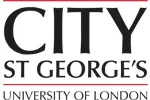In this forever technologically advancing world, electrical engineers play an integral role in the development of our daily lives and the future. With this comes responsibility to minimise the environmental damage, that’s why sustainability and innovation is at the core of this course.
Whether you’re designing parts of a performance car, a space craft, or a new medical device, on this BEng Electrical and Electronic Engineering degree, you’ll learn the skills to become an engineer capable of imagining and creating ground-breaking products.
Why study BEng (Hons) Electrical and Electronic Engineering at BNU?
Industry input
This Electrical and Electronic Engineering course has been developed to mirror today’s Engineering Design industry and continues to work closely with its own Industry Advisory Board to ensure the curriculum and teaching is relevant.
You’ll also have the opportunity to engage with industry-professionals and practitioners, as well as our working alumni. You’ll benefit from guest lectures, masterclasses and workshop sessions, live briefs, site visits and where possible, a contribution to the assessment of your work.
Facilities
During your time on the course you’ll have access to our state-of-the-art and brand-new Engineering and the Built Environment facilities, including;
- Building Services Lab, to include Air Conditioning Trainer, Hydro-electric Turbine and Photovoltaic Cells
- Concrete & Geotechnical Testing Lab, to include Slump Test, Concrete Density, Porosity, Flexural and Compression Testing, Soil Shear, Grading and Moisture Tests.
- Fluids/Thermo/Hydraulics Lab, to include Pneumatics Workstation, Digital Hydraulic Bench, Axial Flow Pump and Surface Tension Balance.
- Mechanical/Structural Lab, to include different Structural Test kits that will measure Deflection of Beams & Cantilevers, Bending Stress and Bending Moments
- Electronics and High Voltage Lab, to include Power and Energy Electronics, Modern Electrical Machine Systems, Three Phase Power Systems
- Automation/Manufacturing/General Workshop, to include 3D Metal Printer, Hardness Tester, Universal Tensile Testing, Impact Tester and and Dobot Smart Industry 4.0 Workstation
- CAD Lab and Design Studio
- Immersive Virtual Reality Lab
Study Options
This programme runs as a full-time course, structured across three years. We also offer the full-time course with an additional placement year in your third year. This four-year option allows you to get hands-on within the industry, before you complete your studies.
We also offer this course as a four-year Foundation Year programme. The Foundation Year will allow you to develop your academic study skills and build confidence in your abilities, identifying your own strengths and development needs for progression onto an undergraduate programme. If you choose to study the placement year, as well as the foundation option, the course will span over five years.
What will I study?
This practical and hands-on 'ee' course incorporates innovation and creativity at every stage of learning. During your time with us you’ll gain an extensive knowledge and critical understanding of professional ethics, social and cultural values in engineering.
You’ll study the principles, characteristics, control design requirements and applications of instrumentation and power systems used in industry. During your time with us you’ll create, simulate, build and test prototype circuits and systems using printed circuit boards, MATLAB Simulink, LTSpice and electronic laboratory equipment.
Modules are centred around industrial systems, analogue, digital and power electronics with basic engineering. With a focus on sustainability, you’ll learn skills to help you identify and solve electrical engineering problems, whilst meeting the needs of the industry and the forward-thinking sector.
You’ll get to grips with industry-standard equipment including Zero Energy Systems, Power electronics, Machines and Drives, Industry 4.0, Mechatronic, Robotics, PLC and electro-mechanical rigs to provide real-time hands-on experiences
At all levels of the course, employability skills have been built into the programme to prepare learners to gain work experience and acquire skills to secure employment on graduating. These activities will include practitioner visits, CV preparation, mock interviews, and production of a personal portfolio. Throughout the course you’ll also have the opportunity to work on live briefs set by engineering employers, all of which can later be added to your portfolio.
Local to the University are high tech business clusters and with London only a short train ride away, you’ll have the opportunity to engage with representatives from industry during your course.
How will I be taught and assessed?
On this Electrical and Electronic Engineering course, a range of teaching methods and authentic assessment strategies will be used, we ensure an emphasis is put on both practical and traditional teaching approaches.
Laboratory sessions and a range of practical activities will build upon previous learning from lectures and tutorials.
Traditional forms of assessment include;
- Written assignments
- Report
- Portfolio and digital models
- In-class assignments
- Computer-based test
- Set Presentations (for example, poster and oral)
- Proposal
- Dissertation
You’ll study in a close-knit tutor group where everyone’s input is recognised and valued. Not only will you make friends for life, you’ll also make important connections that will last through your career, and you’ll form a network, just like you’d find in the working-world.






